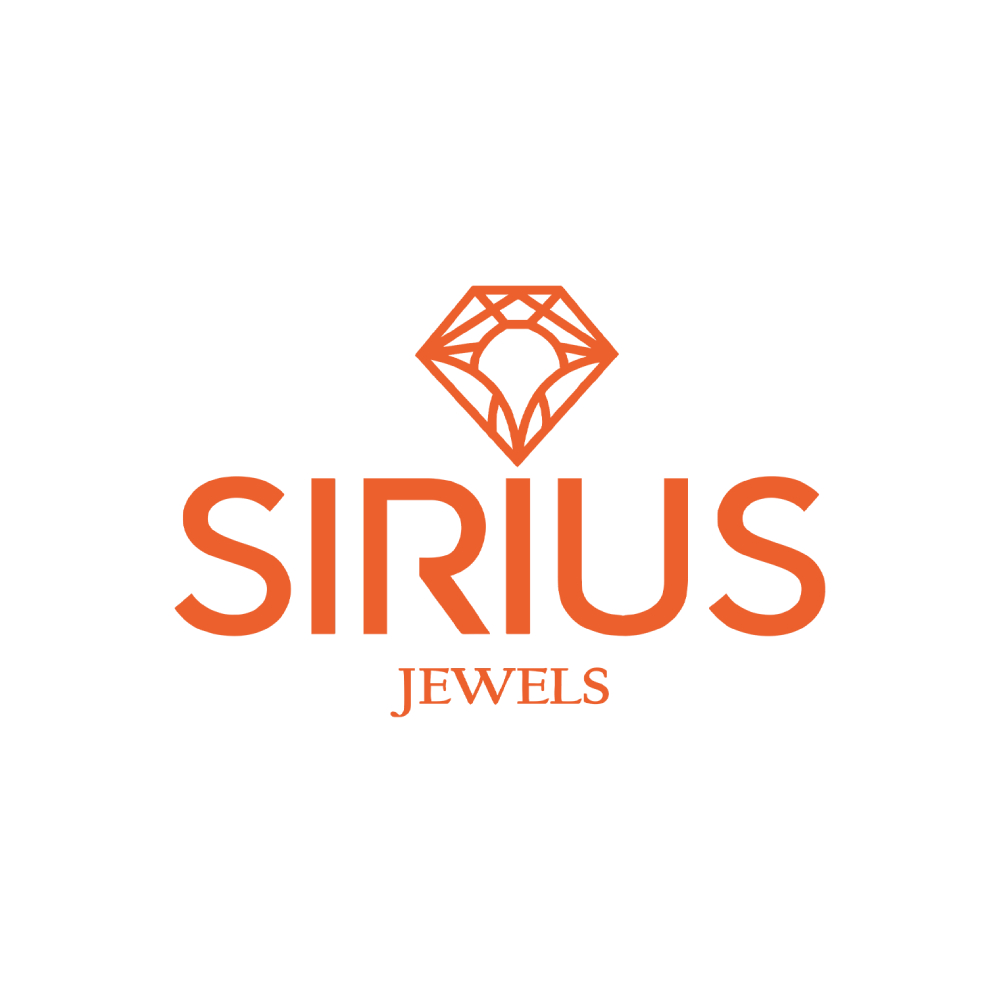18 Carat Gold Ring For SiriusJewels
Why Choose an 18 Carat Gold Ring for Your Special Moments?

Gold has always been considered a symbol of purity, love, and wealth. When it comes to rings, one of the most preferred choices is the 18 carat gold ring. The reason is simple – it combines elegance with strength. Unlike 22k or 24k gold, which are softer and prone to scratches, 18k gold (75% pure gold + 25% alloy metals) offers both beauty and durability.
This makes it an excellent option for engagement rings, wedding bands, anniversary gifts, or even daily wear fashion rings. At Sirius Jewels, every 18 carat gold ring is crafted to perfection with a balance of shine, strength, and timeless charm.
The Purity and Durability of 18K Gold
- Purity: 18K gold has 75% pure gold, which gives it a rich yellow tone and luxurious appeal.
- Strength: The alloy mixture makes it harder than 22K and 24K, so it lasts longer.
- Versatility: Perfect base for studded designs like diamonds, gemstones, and enamel work.
- Value for Money: Compared to higher carats, 18K rings give you durability without compromising on shine.
This is why most diamond rings and designer jewelry pieces are set in 18K gold.
18 Carat Gold Rings for Every Occasion
At Sirius Jewels, we believe that jewelry should reflect emotions. That is why we design 18 carat gold rings for every milestone in life:
- Engagement Rings – Elegant solitaire or halo-style rings crafted in 18K gold.
- Wedding Bands – Classic, sleek, and durable designs for couples.
- Anniversary Rings – Designer rings with diamonds or gemstones to celebrate love.
- Daily Wear Rings – Minimal yet stylish designs perfect for office and everyday use.
- Statement Rings – Trendy cocktail and bold rings for parties and functions.
Exclusive Designs at Sirius Jewels
Our collection of 18 carat gold rings features:
- Diamond-Studded Rings – Shining brilliance with certified diamonds.
- Plain Gold Bands – Simple yet classy options for minimalists.
- Customized Rings – Personalize your ring with initials, engravings, or birthstones.
- Modern Designer Rings – Inspired by international jewelry trends.
Every design at Sirius Jewels is handcrafted with care and certified for authenticity.
How to Style an 18 Carat Gold Ring
Styling a gold ring is all about balance and occasion. Here are some quick tips:
- Pair a solitaire 18K gold ring with a formal outfit for a classic look.
- Stack multiple thin 18K bands for a trendy and youthful style.
- Choose gemstone-studded 18K rings to add a pop of color to your wardrobe.
- A gold ring can be your statement piece for weddings or parties.
Cashback Offers at Sirius Jewels
Buying jewelry is not just about fashion but also about value. At Sirius Jewels, we make your shopping experience even more rewarding.
- Shop white gold rings online at Sirius Jewels and get special cashback offers on select designs.
- Limited-time festive discounts and exchange benefits are available.
- Assured certified jewelry with easy payment options.
This means you not only buy authentic, luxury jewelry but also save while doing so.
Why Buy from Sirius Jewels?
- 100% certified purity and hallmarking
- Latest designer collections updated regularly
- Cashback and festive offers on select products
- Trusted brand in fine jewelry
- Safe and convenient online shopping with doorstep delivery
When you choose Sirius Jewels, you choose quality, trust, and timeless elegance.
The History and Popularity of 18K Gold Rings
The use of gold in jewelry dates back thousands of years, but the idea of alloying gold to make it stronger has been a modern solution. Pure 24K gold, though luxurious, is too soft for everyday use. This is where 18 carat gold became popular in Europe and Asia for making rings. Over time, it became the preferred standard for engagement and wedding rings worldwide.
Even today, major jewelry houses and luxury brands rely on 18K gold for crafting fine jewelry. It strikes the right balance between purity, durability, and elegance.
Exclusive Designs at Sirius Jewels
Our collection of 18 carat gold rings features:
-
Diamond-Studded Rings – Shining brilliance with certified diamonds.
-
Plain Gold Bands – Simple yet classy options for minimalists.
-
Customized Rings – Personalize your ring with initials, engravings, or birthstones.
-
Modern Designer Rings – Inspired by international jewelry trends.
Every design at Sirius Jewels is handcrafted with care and certified for authenticity.
How to Style an 18 Carat Gold Ring
Styling a gold ring is all about balance and occasion. Here are some quick tips:
-
Pair a solitaire 18K gold ring with a formal outfit for a classic look.
-
Stack multiple thin 18K bands for a trendy and youthful style.
-
Choose gemstone-studded 18K rings to add a pop of color to your wardrobe.
-
A cocktail 18K gold ring can be your statement piece for weddings or parties.
Maintenance Tips for 18 Carat Gold Rings
To ensure your 18K gold ring stays as beautiful as the day you bought it, follow these care tips:
-
Avoid Harsh Chemicals: Keep your ring away from cleaning agents, perfumes, and chlorine.
-
Regular Cleaning: Use mild soap and warm water to clean your ring, then wipe with a soft cloth.
-
Professional Checkups: Get your ring polished and checked for loose stones at least once a year.
-
Proper Storage: Store your 18K ring separately in a soft jewelry pouch to avoid scratches.
Investment Value of 18K Gold Rings
Apart from beauty, an 18 carat gold ring is also a smart investment. Since it contains 75% pure gold, it holds intrinsic value that appreciates over time. Unlike fashion accessories, fine gold jewelry retains and often increases in worth. With Sirius Jewels, you also get hallmarked assurance, making your purchase secure for the long term.
Cashback Offers at Sirius Jewels
Buying jewelry is not just about fashion but also about value. At Sirius Jewels, we make your shopping experience even more rewarding.
-
Shop 18 carat gold rings online at Sirius Jewels and get special cashback offers on select designs.
-
Limited-time festive discounts and exchange benefits are available.
-
Assured certified jewelry with easy payment options.
This means you not only buy authentic, luxury jewelry but also save while doing so.
Why Buy from Sirius Jewels?
-
100% certified purity and hallmarking
-
Latest designer collections updated regularly
-
Cashback and festive offers on select products
-
Trusted brand in fine jewelry
-
Safe and convenient online shopping with doorstep delivery
When you choose Sirius Jewels, you choose quality, trust, and timeless elegance.
Frequently Asked Questions
1. Is 18K gold better than 22K gold for rings?
Yes, for rings 18K gold is better because it is stronger and more durable than 22K, which makes it suitable for daily wear and for holding diamonds securely.
2. Can I wear an 18K gold ring every day?
Yes, you can wear it daily. Its alloy mixture makes it more resistant to scratches and dents than higher purity gold.
3. Does an 18K gold ring lose its shine?
Like all jewelry, it may gather dust or dull over time, but with regular cleaning and polishing it will retain its shine.
Final Words
An 18 carat gold ring is more than just jewelry it is a symbol of elegance, durability, and love. Whether you are buying for yourself or gifting someone special, it always makes the moment unforgettable.
Explore the exclusive collection of 18 carat gold rings at Sirius Jewels and enjoy amazing cashback offers today. Add sparkle to your life with a piece that stays forever.





